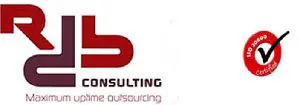Advancing ICT Outsourcing Through Multi-Sourcing
Outsourcing is a business model that is here to stay. Many of the companies we deal with, particularly those in the Information Communication Technology (ICT) sector are realising the benefits of engaging the expertise of third party providers. The benefits of ICT outsourcing include cost savings, better access to skilled resources in short supply and better time investment.
Experience has taught me that the field of ICT can be a really complicated one with its range of different areas. This can cause many problems when an ICT company outsources multiple aspects to one entity. If all services are outsourced to one provider, service levels of the same standard cannot be guaranteed across the board. I’ve seen this happen in cases where large organisations absorb smaller companies which add to their service stack but this doesn’t always mean that new areas will be specialities. These organisations end up between a rock and a hard place, getting trapped in ICT outsourcing contracts with providers who are not able to deliver in accordance with specific needs.
As a result, organisations have come to realise that it may not be wise to put all your outsource eggs in one basket. To get round this issue, companies are formulating strategies that involves multiple outsource partners for a variety of niche areas. They are sourcing specialists who deliver high levels of service in each specific area.
Benefits of multi-sourcing
- Easier service evaluation: By following the multi-source model, companies will have more compact service capabilities that are easier to evaluate. This results in improved fact-based decision-making capabilities with regards to service continuation.
- Easily switch service providers: When using the traditional outsourcing model, multiple services are handled by one provider. The switch is a tricky business because it involves multiple systems and processes. The multi-sourcing model on the other hand allows for certain services to be easily switched in case a niche provider fails to deliver in this area. It also creates a more competitive environment amongst vendors because of improved service levels and greater value adds in their attempt to get the advantage.
- Business operations: The outsourcing and multi-sourcing models fit nicely into modern business operations. You and I are aware of the skill shortage that exists in South Africa and hiring full-time resources in-house for your IT operations management is just not a cost-effective option, especially when most of the administration is not a full-time job. ICT Outsource partners will deliver services faster when compared to internal IT departments. This is due to the fact that service level agreements have set response times for resolving issues. Internal resources on the other hand are not bound by such agreements.
- Better resources: In addition multi-sourcing provides the organisation with access to a greater pool of resources for finding the best solution and delivering this within a short amount of time. This can be done on demand and without the need to pay the high costs of a full-time resource. The multi-sourcing model enables you to find specialists in specific areas, ensuring that a specialised service can be provided in line with the latest technological advances and trends.
- Flexibility: These services can be procured without continual use of full-time resources. The services can also be scaled up and down in accordance with the company’s current and future needs. Multi-sourcing ensures that organisations don’t have to be locked into single contracts with vendors who are not delivering desired results in all areas. This makes it relatively easy to replace one area and achieve better service results.
Drawbacks of multi-sourcing
One of the problems with multi-sourcing is that it involves much more administration. The reason for this is that multiple contracts and service level agreements have to be managed constantly. To handle all this admin, the organisation will need more internal resources in order to review reports from their providers and to make informed decisions with regards to performance.
Hiring a single ICT outsource providerto handle a range of issues may involve a lot less administration, but it increases the risk. If that one provider experiences problems, the entire IT system is in danger of being compromised.
ICT Outsourcing in its many forms makes sense in the modern business environment. When choosing between traditional outsourcing and multi-sourcing models, organisations will need to weigh up the increased administration against increased risk.
Contact RDB Consulting for ICT Outsourcing – Jennifer Mbesa, jennifer@rdbconsulting.com or +27 (0)11 807 7663
Categories
Archives
- December 2024
- May 2024
- April 2023
- April 2021
- June 2019
- January 2019
- October 2015
- June 2015
- April 2015
- March 2015
- October 2014
- January 2014
- October 2013
- March 2013
- February 2013
- January 2013
- November 2012
- October 2012
- May 2012
- April 2012
- March 2012
- February 2012
- January 2012
- December 2011
- November 2011
- October 2011
